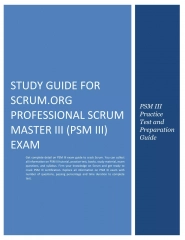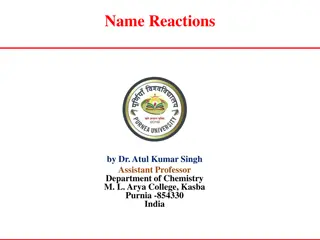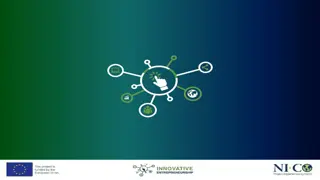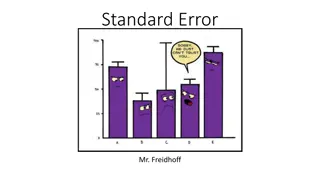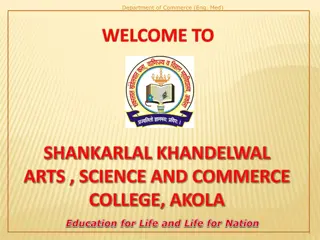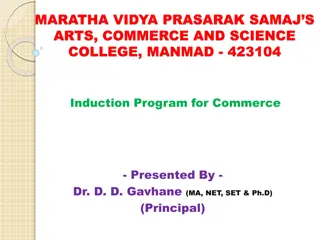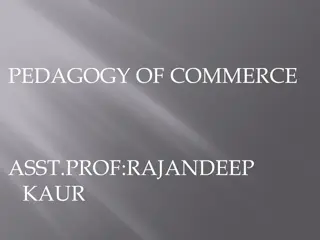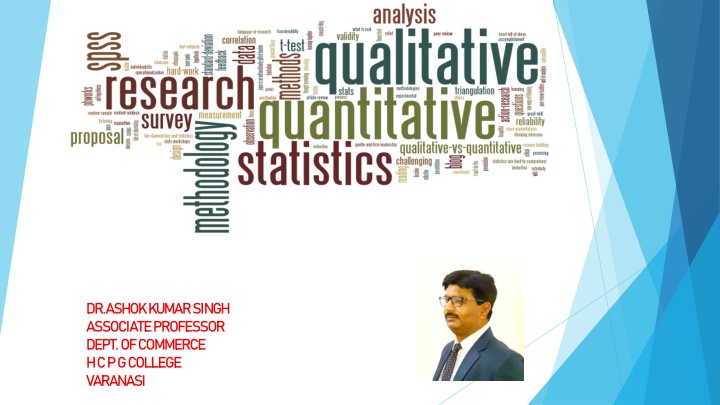
Research Methodology in Management Studies: Concepts, Data Collection, Analysis, and Reporting
Explore the comprehensive syllabus for M.Com III Semester, focusing on research concepts, data collection methods, analysis techniques, and report preparation. Understand the characteristics, objectives, and types of research, aiding in developing a structured approach to academic research in management studies.
Download Presentation

Please find below an Image/Link to download the presentation.
The content on the website is provided AS IS for your information and personal use only. It may not be sold, licensed, or shared on other websites without obtaining consent from the author. If you encounter any issues during the download, it is possible that the publisher has removed the file from their server.
You are allowed to download the files provided on this website for personal or commercial use, subject to the condition that they are used lawfully. All files are the property of their respective owners.
The content on the website is provided AS IS for your information and personal use only. It may not be sold, licensed, or shared on other websites without obtaining consent from the author.
E N D
Presentation Transcript
DR.ASHOK KUMAR SINGH ASSOCIATE PROFESSOR DEPT. OF COMMERCE H C P G COLLEGE VARANASI
RESEARCH METHODOLOGY M.COM.III SEMESTER SYLLABUS
UNIT.1 Concept of research and its applications in various functions of Management, Types of Research types of business problems encountered by the researcher, Problems encountered by the researcher ,Problems and precautions to the researcher. Process of Research: Steps involved in research process, Research Design and various methods of research design. UNIT.2 Collection of Data : Concept of sample, sample size and sample procedure, various types of sampling techniques, types of data: secondary and primary ,various methods of collection and data, preparation of questionnaire and schedule, precautions in preparation of questionnaire and collection of data . UNIT.3 Analysis of data: Coding, editing and tabulation of data, various kinds of chart and diagram used in data analysis, bar and pie diagrams and their significance , use of SPSS in analysis of variance is (anova). UNIT.4 Report Preparation: Types and layout of research report ,precautions in preparing the research report bibliography and annexure in the report. Their significance, driving conclusion, suggestions and recommendations of the concerned person.
What is Research ? Research can be defined as an organized and systematic study of materials and sources in order to discover new things and establish facts and reach new conclusion. Essentially speaking research involves well developed plan, a systematic approach to developing new theories our findings solutions are various problems .Research is actually a journey of Discovery .Human science aeons have been trying to discover better methods of doing routine things, a better explanation for why things happen in a particular manner and better answer to recurring problems .Thus research is area i.e. a revisit on the earlier findings with the intention of correlating them with newly discovered facts.
CHARACTERISTICS OF RESEARCH 1. A research aims at solving a problem 2. Research gathers new knowledge 3. Research is purposive , that its deals with a well defined significant problem. 4. Research involves collection of primary data 5. Research activities are carefully detailed and clearly outlined through a research design. 6. Research requires a degree of expertise and skill. 7. Research should be objective and logical. 8. every process terms and tool used in the research should be carefully documented and reported. 9. the research should target towards the discovery of general principles of theories which can find application to a wide range of problems in the present and future context.
Objectives of researches 1.To explore 2. To describe 3. To diagnose 4. Establish casual relationship TYPES OF RESEARCHES 1. Basic research 2. Applied research 3. Empirical research 4. Quantitative research 5. Qualitative research 6. Longitudinal research 7. Simulation research
RESEARCH METHOD AND METHODOLOGY research but methods and research methodology research methods refers to all the techniques that have been used for conducting the research. What is the meaning of research techniques ? It refers to all the instruments like questionnaries and behaviours like attitude measurement that are used in research the distinction between research techniques and methods is very thin and can be better illustrated with the help of an example for instance in a survey research a researcher may use the method of interview to collect data and to conduct this interview the researcher will probably develop an interview schedule which would be called as a research technique similarly, the method of Data collection may be observation and the researcher may use the technique of scorecard or closed circuit TV cameras as instrument to collect data the science of methods is termed as research methodology it refers to the process of conducting the research research methodology not only describes the steps involved in conducting the research but also justifies the choice of various methods States the limitation of research and also bring out the presupposition and consequence and conducting the research. Before proceeding ahead it is pertinent that a distinction is drawn between
STEPS OF SCIENTIFIC METHOD IN BUSINESS RESEARCH 1. Define the problem 2. Select the decision group 3. Identify issues and objectives 4. Develop the structure of the hierarchy 5. Judge the importance of the decision factors 6. Evaluate alternative 7. Report on results 8. Check reasonableness 9. Finalize choices 10. Documentation
RESEARCH PROCESS Phase.1 Idea generation Assess problem Theoretical analysis of the problem Defining the problem Phase. 2 To manage research problem Develop hypothesis and objectives Research proposal Research design Phase. 3 Research design implementation Drawing a sample Designing the instrument Defining the problem
Phase. 4 Knowledge creation Data analysis Hypothesis testing Data interpretation Reporting and presentation
SIGNIFICANCE OF RESEARCH SIGNIFICANCE OF RESEARCH 1. It leads to Discovery and innovation 2. It improves decision making 3. It helps in ascertaining trends 4. Social sciences also depend on research 5. It adds in framing the government policies 6. Research is widely used in business organisations
RESEARCH IN INDIA India is one of the fastest growing economies of the world yet research in India has not really gained momentum until the turn of century a primary research for this can be seated to the fact that post independence all energies were focused on making India a self reliant country it was with the implementation of the intellectual property rights as laid down by the WTO in its Uruguay round that India woke up to the challenge of research today India has started investing in research in biotechnology in agriculture research medical research nuclear research accept the role of government business and academy CA in promoting research is being duly recognised and effort it's are being made to encourage research in all the sectors. Thanks

